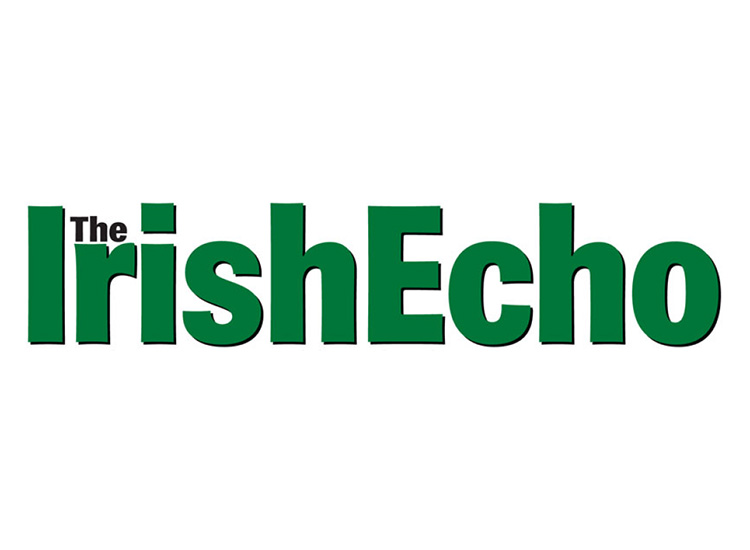[caption id="attachment_79992" align="alignnone" width="300"] BLEK
By Colleen Taylor
John Blek and the Rats sounds like it might be parodic band name, but this is one Irish ensemble to take seriously. Blek and his Rats know good folk music, and they use their musical talent to produce poetic, powerful, oftentimes haunting tracks. Their latest album, “Borders”—officially out in just a couple weeks—is the band’s best and most complex yet.
Blek is the songsmith and lead vocalist, supported by musicians Anna Mitchell, Robbie Barron, David Murphy, Brian Hassett, and Cian Heffernan. The band’s first album, “Leave Your Love at the Door,” was received to great critical acclaim in Ireland two years ago. In the interim John Blek released a solo album, “Cutting Room Floor,” and the band has toured all over Ireland, the UK, and Germany.
The band’s latest album, “Borders,” however, couldn’t be more different from their first. While “Leave Your Love at the Door,” represents prototypical country-Americana music, “Borders” is a darker, more thought-provoking, de-countrified collection. I prefer the sound Blek has created in “Borders.” While the Rats of “Leave Your Love at the Door” sound like a band imitating their favorite country musicians, “Borders” is something more distinctly their own—a unique creation. What’s more, this album involved a more grand-scale production than their first. Recorded in Cork with a host of interesting folk instruments and carefully orchestrated harmonies, “Borders” sounds clean and multi-faceted. With this album, Blek wrote something both more contemporary and differential from your typical country-Americana genre. There’s more “alt” in this sophomore record as well, but not at the expense of a pure folk style.
“Borders” qualifies as highbrow folk music. By removing the overpowering country twang from his music’s new stylings, Blek has highlighted his original lyrics, which are rich in metaphor and brave in subject matter. Blek is unafraid to write on the tough topics, and he particularly wanted the theme of “Borders” to be cohesive and challenging. The stories of the album’s songs vacillate between and probe the dark and light moments of human existence—life as well as death, good as well as bad. The lyrics explore topics like addiction, domestic abuse, and mental illness. There is even a song about funeral home director who falls in love with a corpse (Blek is adept at black humor as well). The song “Brothers” depicts the struggles of organized religion. Finally, the keynote track on the new album, “Wandering Child” is, as the title might suggest, about a missing child. In its accompanying music video that the band recently released on their website, a hitch-hiking girl gets picked up and her narrative deteriorates into tragedy.
While the music of John Blek and the Rats is not traditionally Irish in any sense, there is something quintessentially Irish in the album’s lyric and symbol, literarily speaking. The tragedy that crops up in some of the songs can be interpreted as a contemporary spin on the ballad tradition. For instance, while the best song on the album, “Wandering Child,” sounds like it belongs at Woodstock, the lyrics might be more at home in an Irish poetry anthology. Whether Blek realizes it or not, his song descends from his culture’s poetic tradition, as a modern-day, musical riff on W. B. Yeats’s “The Stolen Child.”
In the coming weeks, “Borders” will hit the shops and online music stores. Give it a listen. It signifies one of the best things I love about the folk music tradition in Ireland, traditional and otherwise: the extraordinary marriage of word and chord, lyric and chorus. This album is great writing and great folk music too. Check it out at: johnblekandtherats.com.
Colleen Taylor writes the Music Notes column each week in the Irish Echo.









